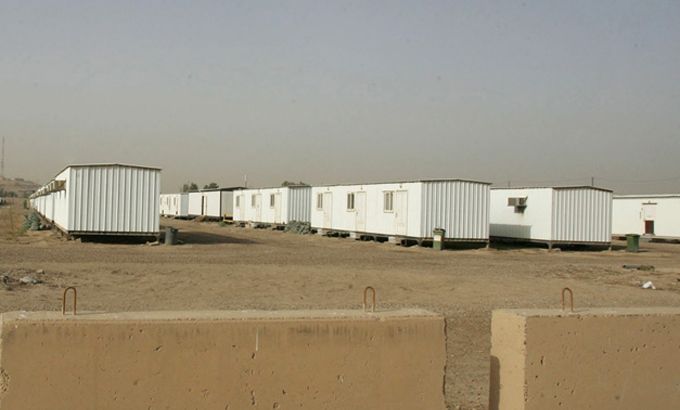UN condemns attack on Iranian exile camp
Ban Ki-moon demands investigation by Iraqi authorities into deadly attack on dissident base that left at least six dead.

Ban Ki-moon, the UN secretary-general, has condemned a deadly attack on an Iranian dissident camp in the Iraqi capital and demanded an investigation by authorities.
“(Ban) strongly condemns the mortar attack today on Camp Liberty, the temporary transit facility near Baghdad for former residents of Camp Ashraf,” his press office said in a statement after the attack on Saturday.
The US state department labelled the assault a “vicious and senseless terrorist attack,” and called on Iraq to probe the attack and enhance security at the camp.
According to the Associated Press, at least six people were killed and dozens of others were injured when missiles struck the area occupied by the Mujahadeen e-Khalq (MEK) group near Baghdad.
A spokesman for the European Union foreign policy chief Catherine Ashton, also joined in the condemnation of the attack.
“We express our condolences to the families of the victims. We are concerned that it could add tension to the present situation in the camp,” the EU spokesman said.
A spokesman for the interior ministry, however, said only one person had been killed and that reports of more deaths were “exaggerated”.
There was no immediate claim of responsibility for the attack on the transit camp, a former American military base known as Camp Liberty, adjacent to Baghdad’s international airport.
The camp was the base that now-executed dictator Saddam Hussein allowed the group MEK to establish in Diyala province in the 1980s, during Iraq’s eight-year war with Iran.
Martin Kobler, the top UN official in Iraq, told Al Jazeera that he was “shocked” by the attack.
“These people have to be protected,” he said, calling on Iraqi authorities to “promptly conduct an investigation”.
‘Terrorist group’
The camp is home to more than 1,000 residents from the MEK who were moved last year, on Iraq’s insistence, from their historic paramilitary camp of the 1980s – Camp Ashraf.
The MEK was founded in the 1960s to oppose the Shah of Iran, and after the 1979 Islamic revolution that overthrew him it took up arms against Iran’s theocratic rulers.
It says it has now laid down its arms and is working to overthrow the government in Tehran through peaceful means.
|
|
It is no longer welcome in Iraq under the Shia-led government that came to power after US-led forces invaded and toppled Saddam in 2003.
Al Jazeera’s Jane Arraf, reporting from Baghdad, said Iraq sees the MEK as a “terrorist group”.
“They [MEK] say they’re in danger from the Iranians and the Iraqi government,” she said.
The UN intends to process them for refugee status in other countries but no country has so far welcomed them.
Britain struck the group off its terror list in June 2008, followed by the European Union in 2009 and the US in September 2012.
The US state department holds the group responsible, however, for the deaths of Iranians as well as US soldiers and civilians from the 1970s into 2001.
The MEK has no support in Iran, and no connection to domestic opposition groups.